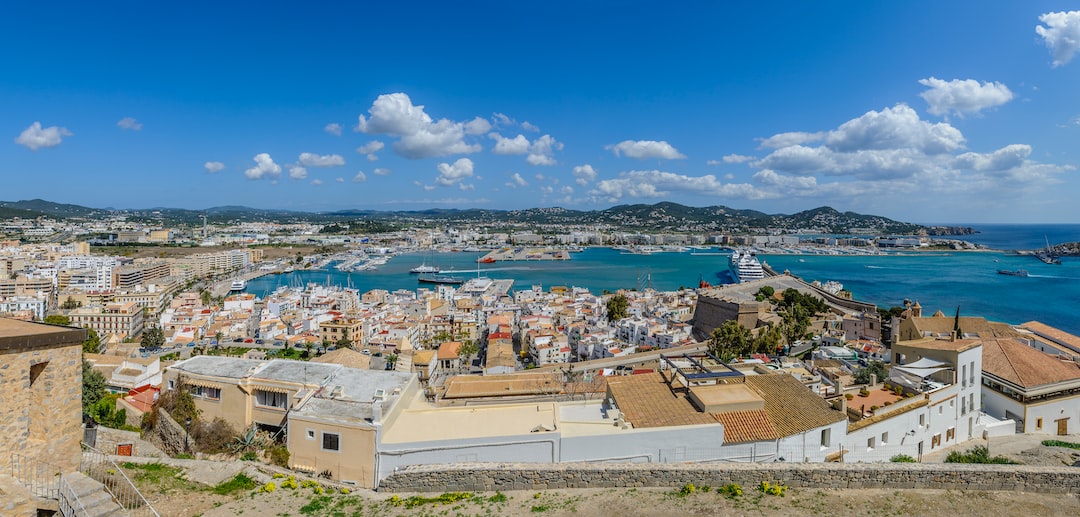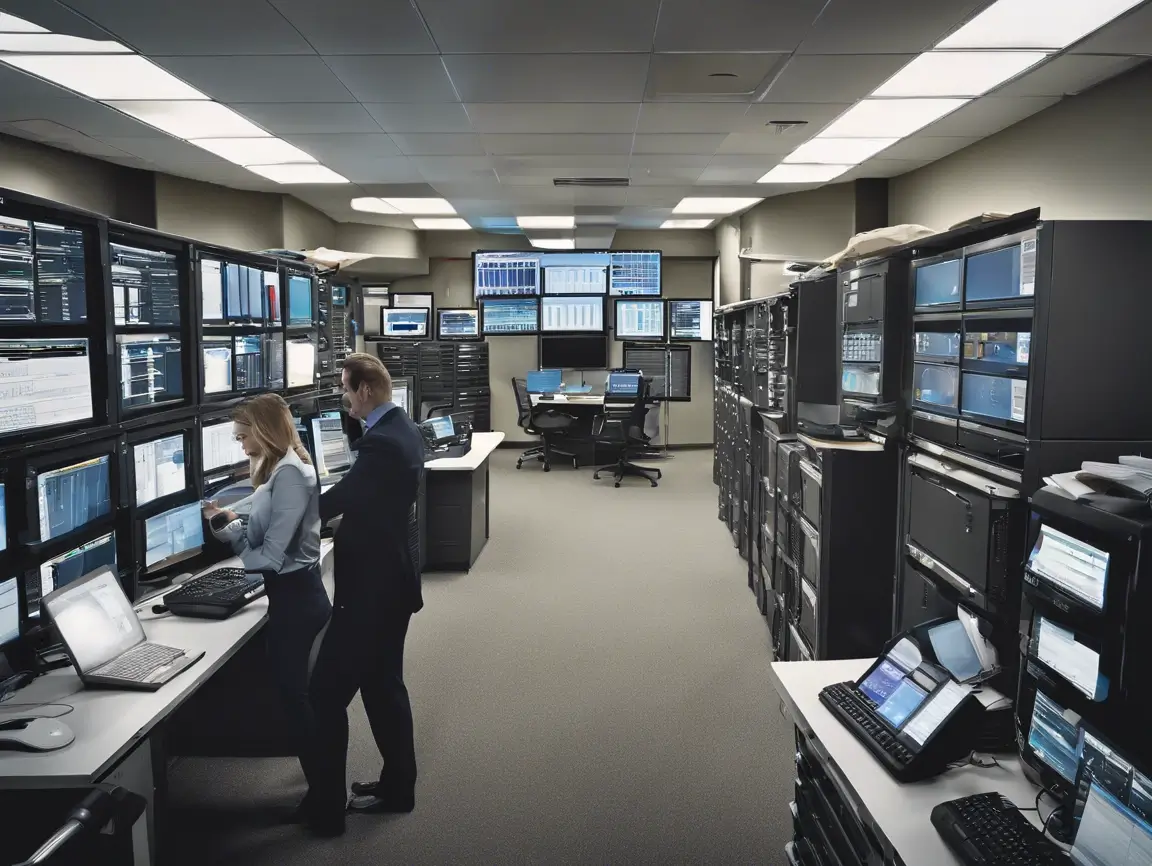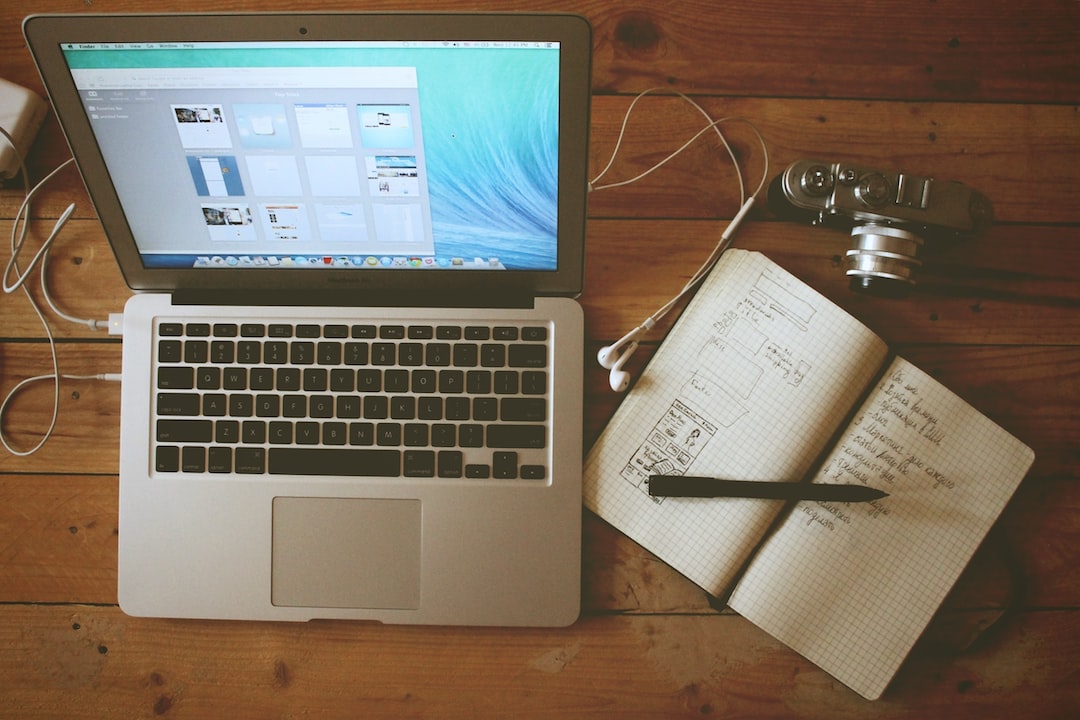Alright, fam, let’s get real for a second. We’re living in a digital world, where almost every move we make online is being watched, tracked, and maybe even sold to the highest bidder. Kinda creepy, right? Yeah, we thought so too. This is where our trusty sidekick, the VPN (Virtual Private Network), comes into play. VPNs aren’t just for old-school hackers or people who watch super-secret stuff online. They’re for everyone who values their online privacy and wants to stay secure in this information age. Let’s dive into how VPNs can keep you safe, why you should care, and break down all the stuff that makes VPNs your digital guardian angel. 🙌
What’s the Deal with VPNs?
Okay, let’s kick things off with the basics. VPN stands for Virtual Private Network, and it’s not as complicated as it sounds. Think of it as a super-tunnel that keeps your online activity private and secure. When you’re connected to a VPN, your data gets encrypted before it even leaves your device and travels through the internet. It’s like turning on invisibility mode in your favorite game—nobody knows where you are or what you’re up to. This way, whether you’re creeping on Reddit, shopping for some fire drip, or streaming your fav shows, your data remains locked down and chill. 😎
A VPN can change your IP address, which is that little piece of data that tells websites where you’re located. Normally, your IP address gives away your actual location, but with a VPN, it’s like you’re teleporting into another country altogether! This is how people stream content geo-locked to specific regions or stay anonymous while living their best internet lives. If you’ve ever been hit with that pesky “This content is not available in your country” message, a VPN is the ultimate workaround. ✌️
Now, for all you skeptics out there, it’s normal to wonder if VPNs are even legit or worth the hassle. The truth is, everyone from activists to average joes is using VPNs to protect their online privacy. The data trails we leave behind are like gold mines for big corporations, advertisers, and even cybercriminals. Whether it’s Cambridge Analytica-type scandals or hacking incidents, our data has never been more vulnerable. A solid VPN keeps these sketchy characters at bay by adding extra layers to your online security. Plus, you don’t have to be a tech whiz to use one. It’s easier than ordering a pizza online.
The Major Benefits of Using a VPN
Alright, so you’re probably thinking, “Cool, but why should I bother with a VPN?” The answer is simple: VPNs offer some serious advantages. Let’s break them down.
✨ Protect Your Privacy at All Costs
First up: privacy. This is one of the key benefits of using a VPN, especially in a time when so many of us live our lives online. From social media DMs to banking info, we’re sharing more personal information than ever, and it’s kinda scary how easy it is for someone to nab it. A VPN acts like a cloak, shielding you from prying eyes by encrypting your data. This means your Internet Service Provider (ISP), app developers, and even government agencies have a much harder time snooping on your online activities. 🤐
🗺️ Access Geo-Restricted Content
Ever found a show or movie on Netflix that you were dying to watch, only to realize it’s locked to another country? Bummer, right? That’s where a VPN can save your binge-watch session. By connecting to a server in a different country, you can trick streaming services into believing you’re accessing from that region. This opens up a whole new world of content—Netflix libraries from other countries, BBC iPlayer, or whatever you fancy. Not just that, VPNs can also get you past school or workplace firewalls, so you can surf the net freely without being blocked or restricted. 😜
🛡️ Protect Your Data on Public Wi-Fi
Using public Wi-Fi is risky business, folks. Whether you’re at your local coffee shop or the airport, hackers can easily intercept the data flowing through these networks. It’s like leaving your front door open while you’re away—an open invite for trouble. Once a hacker is in, they can snatch your passwords, credit card details, and more. A VPN puts an end to all that nonsense by encrypting your traffic and making it nearly impossible for anyone to make sense of it. Yup, that means you can sip your caramel macchiato and shop online without a worry. ☕
🎮 Reduce Gaming Lags and Avoid DDoS Attacks
Gamers, listen up. This one’s for you. Online gaming is all fun and games until you experience unbearable lag or, even worse, fall victim to a DDoS (Distributed Denial of Service) attack. A VPN can connect you to a server that’s closer to the game server you’re playing on, reducing lag time and making your gaming experience buttery smooth. Plus, it hides your real IP address so that DDoS attackers can’t boot you out of a game. We know how valuable those precious seconds are in competitive matches, so why take the risk of playing unprotected? 🎮
How to Choose the Right VPN for You
Okay, so now that you know why VPNs are the GOAT when it comes to online security, let’s talk about how to choose the right one for you. With so many options out there, it’s easy to get overwhelmed. But don’t trip—we got you covered. Here’s how to make sure the VPN you pick is as fire as your Insta feed.
🔮 Security Protocols
This is the backbone of any VPN, and it’s something you def don’t want to overlook. Security protocols are the methods used to encrypt your data, and there are a few different types you should know about. The most popular ones include OpenVPN, IKEv2/IPSec, and WireGuard. OpenVPN is the industry standard and offers a solid balance between security and speed. WireGuard is new but gaining mad respect in the tech world for being super fast and secure. Your chosen VPN should support these protocols or offer something equally secure. 🔐
💨 Speed Matters
Let’s be real, nobody likes to deal with slow internet—especially when you’re gaming, streaming, or downloading files. One of the biggest frustrations with some VPNs is that they slow down your connection. Fortunately, not all VPNs are created equal, and some are better than others at maintaining fast speeds. Look for a VPN that has a rep for keeping your connection speedy AF, especially if you’re planning on streaming in HD or playing online games. Speed tests and online reviews are your best friend here.
🛡️ No-Logs Policy
This is crucial. A no-logs policy means that your VPN provider doesn’t keep any records of your activity on their servers. If a VPN logs your data, it’s kinda defeating the purpose of using one in the first place, right? Make sure the VPN you choose upholds a strict no-logs policy, so there’s zero chance of your online activities falling into the wrong hands. Some VPNs go as far as to have their no-logs policy verified by independent audits, which is a strong indicator they’re serious about your privacy. 🕵️♂️
🌍 Server Locations
Another factor you don’t wanna sleep on is server locations. The more server locations a VPN offers, the better your chances of getting around geo-blocks and improving your internet speed. For example, if one server is overloaded, you can simply switch to another. Plus, having servers in multiple countries gives you more options for accessing content that’s restricted to specific regions. It’s like having the world at your fingertips—literally. Dreaming of that Japanese Netflix content? A VPN with servers in Japan will have you covered. 🎏
💰 Cost Considerations
Okay, let’s talk cash. VPNs are generally pretty affordable, but you definitely get what you pay for. Free VPNs can be tempting, but most of them come with some serious downsides like slower speeds, limited server locations, and even questionable privacy practices. Not to mention, some free VPNs make money by selling your data to third parties, which is straight-up shady. On the flip side, premium VPNs offer better security features, more servers, and often come with 24/7 customer support. It’s a small price to pay for peace of mind, especially when you consider all the benefits.
Setting Up a VPN: A Walkthrough
Ready to roll? Setting up a VPN is easier than you think. Depending on your device, the setup process can be super quick. You don’t need a degree in computer science to do it. Here’s a simple rundown of how to get a VPN up and running on your device. 📲
👩💻 Step 1: Choose Your VPN
First, you gotta pick your VPN. Whether you go for a free trial or sign up for a premium service, make sure the VPN you choose ticks all the right boxes: strong security, fast speeds, no-logs policy, and a good selection of servers. Most VPNs offer a money-back guarantee, so you can always change your mind if things don’t work out. Once you’ve made your pick, head over to their website and sign up. Easy peasy.
📥 Step 2: Download and Install
Next up, download the VPN app suited for your device. Most VPN providers have apps for a range of devices including Windows, macOS, Android, iOS, and even some gaming consoles. Find the download link on the VPN’s website and follow the instructions to install the app. It usually takes just a few clicks to get everything set up.
🔑 Step 3: Log In and Connect
Now, fire up the app and log in using the credentials you created when signing up. Once you’re in, you’ll see a big ol’ “Connect” button. Most VPNs have a quick-connect feature that automatically hooks you up to the best available server based on your location. Just click it, and bam—you’re connected. You can also manually pick a server if you wanna change your virtual location for specific tasks like streaming or gaming.
🛠️ Step 4: Tweak the Settings
Once you’re connected, you may want to check out the settings menu. Even though most VPN apps come with default settings that work just fine, you can customize features like the kill switch, split tunneling, or which security protocol you want to use. If you’re not sure, most VPNs have recommended settings that hit the sweet spot between speed and security. Feel free to explore, but no pressure if you just wanna keep it basic. 👍
🔍 Step 5: Test Your Connection
Finally, you’ll want to make sure everything’s working like a charm. There are plenty of online tools where you can double-check your new IP address and test your connection speed. If everything looks good, congrats—you’re officially part of the VPN squad! Your online activities are now way more secure, and you’re all set to browse, stream, and game like a pro.
Advanced VPN Features You Should Know About
Alright, so you’ve got the basics locked down. But did you know your VPN might come with some advanced features that take your online experience to the next level? Let’s break down a few of these cool add-ons that you might wanna peep.
💣 Kill Switch
No cap, this is one of the most important features you should look for in a VPN. A kill switch is like a safety net. If your VPN connection drops for any reason, the kill switch automatically cuts off your internet. This prevents your real IP address and data from leaking out—because let’s be honest, nobody wants their info exposed, even for a second. It’s a no-brainer, especially if you’re super serious about your privacy. Just make sure you have it activated in your settings.
🔄 Split Tunneling
Split tunneling is another dope feature that gives you more control over your VPN experience. Typically, when you connect to a VPN, all of your internet traffic goes through the VPN’s encrypted tunnel. But what if you don’t need every single app on your device to be protected? With split tunneling, you can choose which apps go through the VPN and which ones connect directly to the internet. This way, you can keep your connection fast and efficient while still keeping sensitive activities secure. For example, you might only want your browser traffic to go through the VPN while your gaming doesn’t.
🧐 Double VPN
If you’re really out here playing chess while everyone’s playing checkers, you might wanna check out Double VPN or Multi-Hop features. Instead of routing your traffic through a single VPN server, it goes through two or more. That means your data is encrypted multiple times, making it even harder for anyone to trace back to you. This level of security may be overkill for everyday use, but if you’re doing something super sensitive—like activist work in a repressive country—Double VPN is definitely worth considering. Keep in mind, this will make your connection slower, but the added security can be priceless.
🎯 Dedicated IP
Normally, a VPN gives you a shared IP address that other users on the same server are also using. While this adds another layer of privacy, sometimes you might want your own IP address for specific tasks, like online gaming, managing a remote server, or making sure your email provider doesn’t flag you as spam. Some VPN services offer the option to get your own dedicated IP—an IP that only you use. It’s next-level personalization that can be useful in certain scenarios. Just be aware that this often comes with an extra fee.
🕵️♂️ Stealth Mode
Even though most people won’t encounter this issue, some countries or networks try to block VPN traffic altogether—think China, Iran, or even some work environments. That’s where stealth mode, or “obfuscation,” comes in. This feature masks your VPN traffic to look like regular internet traffic, allowing you to get around those pesky blocks. It’s a pretty niche feature but a total game-changer if you find yourself in a place where trying to stay anonymous is actually against the rules. 😬
When and Where Should You Use a VPN?
By now, you’re probably feeling pretty hyped about all the advantages a VPN has to offer. But if you’re wondering where and when you should use one, don’t stress—we’ve got you. Knowing when to fire up that VPN will make your online life not just safer, but also way more convenient.
🌐 Browsing the Web
Let’s start off with the basics. Anytime you’re browsing the web, especially when handling sensitive information—like logging into your bank account, sending private messages, or doing some online shopping—it’s a good idea to have your VPN on. Even if you’re just casually surfing, having a VPN running protects your browsing history from being tracked and sold to advertisers. So yeah, even when you’re just googling what an NFT is, a VPN has your back.
🇨🇳 When Traveling Abroad
We all love to travel—or at least dream about it. But the internet isn’t as free in every country as it is at home. Some places have strict censorship laws that block access to popular websites, apps, and even social media platforms (China, anyone?). Using a VPN while you’re traveling can help you bypass these restrictions, giving you access to all your fav sites and services as if you were chilling in your own living room. Plus, it can even help you find better deals on flights and accommodations by allowing you to "shop" from a different location. ✈️
🎓 At School or Work
We all know institutions have firewalls and restrictions in place that make surfing the web—especially during school or work hours—a pain. But let’s be honest, sometimes you just need a break from that grind. A VPN can help you break free of those restrictions, letting you check social media, stream videos, or access sites that might otherwise be blocked. Just be careful not to get caught—schools and workplaces sometimes have strong opinions about this kind of thing.
📞 Using VoIP Services
Voice over IP (VoIP) services like Skype, WhatsApp, or Zoom are essential for connecting with friends, family, or even work colleagues. But did you know some countries block or monitor VoIP services? A VPN keeps your calls private and ensures you stay connected wherever you are. Plus, it can help reduce lag and improve call quality by routing your connection through a more optimal server. So go ahead and stay in touch—knowing your conversations are guarded.
🕹️ Online Gaming
This one’s for the gamers. A VPN can help improve your online gaming experience by providing a more stable connection and reducing lag. As mentioned earlier, it also protects you from DDoS attacks and helps you access games that may not be available in your country. Just remember to pick a VPN known for its fast speeds—lagging mid-game is the last thing you want.
💻 Working Remotely
With more people working from home than ever, VPNs have become an essential tool for remote work. If you’re connecting to your company’s network, you’re probably required to use a VPN to access confidential files and resources. But even if it’s not required, using a VPN when working from home is a smart move to keep your professional data secure and prevent any unwanted snooping. It’s also really helpful for accessing region-locked work resources.
Stay Safe, Stay Smart: Some Final Thoughts
VPNs are basically the unsung heroes of the digital age. Whether you’re streaming, gaming, working, or just browsing, a VPN keeps your data safe and your online activities private. It’s like having an extra security blanket around your internet connection, ensuring that no one’s creeping on you without your consent. So if you’re not already using a VPN, the real question is—what are you waiting for?
🎉 Lit FAQs About VPNs
Alright, fam, you’ve stuck around long enough, so let’s wrap this up with some FAQs. We know VPNs can be pretty complex, so here are some common questions and answers that’ll help break down the techy stuff into simple, hawt takes.
🤔 Do I need a VPN on my phone?
Big-time yes. Your phone is basically a mini-computer that you carry around 24/7. Every time you check Instagram, send a Snap, or KO someone in Clash Royale, you’re transmitting data that could be intercepted. Plus, we’re all guilty of hopping on public Wi-Fi at least once in a while, and that’s when you’re most vulnerable. A VPN on your phone ensures that your mobile activities stay private, just like on your laptop or desktop.
🌍 Can I use a VPN to access Netflix from other countries?
Ayyy, yes, you can! One of the coolest perks of using a VPN is the ability to switch your virtual location. This means you can access Netflix libraries from different countries, giving you way more options for what to watch. Just be aware that not all VPNs can bypass Netflix’s detection systems, so make sure to choose a VPN that’s known for reliably unblocking streaming services.
🛡️ Are free VPNs safe?
Ugh, this one’s tricky. While some free VPNs are legit, most aren’t the best option if you’re serious about your privacy. Free VPNs have to make money somehow, and they often do it by bombarding you with ads or even worse, selling your data to third parties. It’s totally worth spending a few bucks a month on a premium VPN that has solid security features and a no-logs policy. Remember, your data is valuable—don’t sell it short.
💼 Will a VPN slow down my internet?
Sometimes, yeah—but it doesn’t have to. Some VPNs can slow down your connection, especially if you’re connecting to a server that’s far away. However, many premium VPNs are designed to minimize speed loss, and in some cases, they can even improve your connection by optimizing your internet routing. If speed is a major concern, look for a VPN that’s consistently rated highly in speed tests, and be sure to choose the nearest server geographically.
👀 Can I get caught using a VPN?
Generally, no—but there are caveats. In most places, using a VPN is perfectly legal, and you won’t get in any trouble for using one to protect your privacy. However, in some countries where internet usage is heavily restricted (think China or Russia), using a VPN might be against the law. Use with caution in those regions. Also, just because you have a VPN doesn’t mean you’re invincible—if you’re doing something illegal online, having a VPN won’t necessarily protect you from the law. Keep it legal, fam.
🖥️ Can I use one VPN account on multiple devices?
You bet! Most VPN services allow you to use one account across several devices—sometimes as many as five or even more. This means you can have your phone, laptop, tablet, and gaming console all protected under the same subscription. Just a heads-up, though: using multiple devices can sometimes slow down your connection a bit, especially if all of them are connected to the VPN at the same time. But hey, small price to pay for being fully covered.
🌟 What’s a kill switch, and why is it important?
We covered this earlier, but it’s worth repeating. A kill switch is a feature that automatically cuts off your internet connection if your VPN drops. This helps prevent your real IP address and online activities from being exposed—even for a split second. It’s like an emergency brake for your online privacy, and it’s especially useful if your internet connection is spotty or if you’re doing something where privacy is a major concern.
And there you have it, my fellow netizens! VPNs might’ve started as tools reserved for nerds and hackers, but now they’re super accessible and easy to use. From beating geo-restrictions to keeping your data under wraps, VPNs are the real MVPs that everyone needs in their digital toolkit. So go forth, pick your VPN, and surf the web like the boss you are.
Keep it safe, secure, and savvy out there ✌️.
Sources & References:
- The Privacy & Security Research Paper: "The Rise of VPN Usage in 2023" – Details about the increasing use of VPNs for privacy.
- BleepingComputer: "VPN Kill Switch: What It Is and Why It Matters" – Explanation and importance of kill switches in VPNs.
- Zyxel Tech Press – Comparative analysis of VPN protocols like OpenVPN, IKEv2/IPSec, and WireGuard.
- TorrentFreak: "Best VPNs for Streaming: How to Bypass Geo-Restrictions" – Analysis of VPNs suitable for streaming.
- Cybersecurity Ventures Report – Insights into the risks of public Wi-Fi and the role of VPNs in mitigating these risks.
- TechRadar Pro: "The Fastest VPNs of 2023" – Performance data on VPN speeds.




